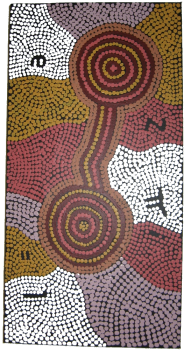Welcome to Ethical Rights
Ethical Rights' objective is to challenge and inspire people to think more rationally about important ethical and science-related issues. More people might then make better decisions about issues affecting themselves, other people and the world, and help make the world a better place.
Public debate on issues ranging from euthanasia to discrimination to climate change has too often been ill-informed. Consider as an example, how some politicians have used religious ideology, unsupported by evidence, for rejecting the progressive and informed views that would improve the lives of individuals, the world's climate and betterment of human society. In this example, in any conflict between rights, the views of one group cannot be forced onto other groups. This follows from the observations that
- people do not want other people's unsubstantiated opinions forced on them
- people should not treat others in ways that they would not like to be treated.
Personal opinions on significant issues have no intrinsic merit. In matters of public significance, people are only entitled to what they can argue for.
This website contains short articles and larger well-argued papers that address important issues.
The Articles link includes some general and media contributions, such as 'Religion and politics', which is critical of the mainly religion-linked objections to climate change and euthanasia policies, and 'Time for euthanasia to be regulated', which provides a strong case for legislated voluntary assisted dying.
A comprehensive set of responses to Voluntary Euthanasia Frequently Asked Questions (FAQs) addresses the most common questions that are asked of euthanasia advocates.
The Articles link also includes more detailed submissions on issues including human rights, discrimination, equality, euthanasia, freedom of religion amongst others. Papers are also provided on science matters ranging from fuel quality (Better Fuel for Cleaner Air) to human cloning.
We hope you find the information on this site challenging, stimulating and useful.
Voluntary Assisted Dying in the ACT 2023
A paper advocating the Human Rights Model for Voluntary Assisted Dying (VAD) was developed in response to a consultation process on voluntary assisted dying in the Australian Capital Territory (ACT). The paper, Voluntary Assisted Dying in the ACT 2023, is included without its appendices (the Summary Report and Results of the Voluntary Assisted Dying Survey 2021 are available elsewhere on this website). VAD is used broadly to encompass voluntary euthanasia, physician assisted suicide, medical aid in dying etc. Further information can be found under the menu item Articles, Euthanasia.
The paper advocates that VAD legislation should be based on a Human Rights Model with a VAD objective 'that all people have the right to access VAD so that their quality of life is not reduced below what they consider to be an acceptable threshold'. Legislation based on this model will meet the criteria for good VAD legislation, namely that it is ethical (upholds individual autonomy and mitigates suffering for all people), is consistent with human rights principles and legislation (and does not discriminate based on type or degree of suffering, life expectancy, age, residency or citizenship status or similar attributes) and is best practice, including that it meets the needs of VAD supporters in the ACT.
In all these respects, the Human Rights Model is an improvement on forms of the Medical Model for VAD that have been legislated in Australian states and many places overseas. Legislation based on forms of the Medical Model does not allow all people to mitigate their suffering, it can discriminate on the degree of suffering, life expectancy, and age, and doesn't meet the needs of voluntary assisted dying supporters. Importantly, the Human Rights Model rejects a key feature of the Medical Model. VAD legislation based on the Medical Model permits doctors to overrule the decision of any person with decision making capacity about their decision to die. Doctors should not be the arbiters of whether each life is worth living; each individual should be. The Human Rights Model upholds individual autonomy, the Medical Model does not.
A later 7 December 2023 paper summarising the problems with the ACT's Voluntary Assisted Dying Bill 2023 was subsequently written in response to the VAD consultation process in the Australian Capital Territory (ACT).
While the introduction of the Bill is commended, the discrimination in the draft Bill is clear and is highlighted in the submission. If individual autonomy is a priority—and it ought to be—then no person with VAD decision making capacity should be excluded from accessing voluntary assisted dying. Moreover, limiting VAD to terminally ill people is ethically equivalent to limiting abortion to raped women only. All people, including people who are suffering but not terminally ill. should be able to access VAD. All women, including women who have not been raped, should be able to have an abortion. All people can suffer, and all people should be able to have their suffering mitigated.
Voluntary Assisted Dying Survey 2021
We comprehensively surveyed voluntary assisted dying (VAD, voluntary euthanasia) advocates around the world in 2020–2021. They were surveyed on many of the ethical, regulatory and individual considerations that arise when considering voluntary euthanasia.
The survey outcomes (Summary Report, Results and Supplementary Material) and survey questions are available at: Ethical Rights Voluntary Assisted Dying Survey 2021.

